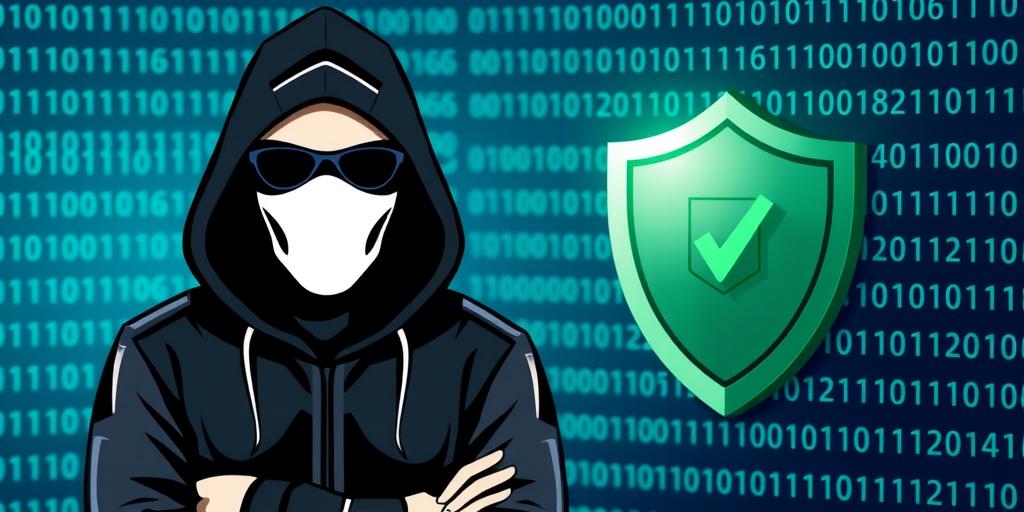The Ethics of Cybersecurity and Hacking
In today's interconnected world, cybersecurity has become a paramount concern for individuals, businesses, and governments alike. The rise of sophisticated cyber threats has led to a constant battle between those who seek to protect digital assets and those who aim to exploit vulnerabilities. At the heart of this struggle lies a complex web of ethical considerations that must be carefully examined.
Understanding the Landscape
Before delving into the ethical dilemmas, it's crucial to understand the key players and concepts involved:
- Cybersecurity Professionals: These individuals are tasked with safeguarding computer systems, networks, and data from unauthorized access, theft, and damage. They employ various techniques, including firewalls, intrusion detection systems, and encryption, to defend against cyberattacks.
- Hackers: This term encompasses a wide range of individuals with varying motives and skill levels. Some hackers, known as "white hat" or ethical hackers, use their expertise to identify and fix security vulnerabilities in systems with the permission of the owner. Others, referred to as "black hat" or malicious hackers, exploit vulnerabilities for personal gain, causing harm to individuals or organizations.
- Gray Hat Hackers: Occupying a middle ground, gray hat hackers may sometimes operate without explicit permission but generally do not have malicious intent. They might disclose vulnerabilities to the affected organization, sometimes demanding compensation for their findings.
Ethical Frameworks in Cybersecurity
Several ethical frameworks guide the actions of cybersecurity professionals:
- Confidentiality: Protecting sensitive information from unauthorized disclosure is a fundamental ethical principle. Cybersecurity professionals must ensure that data is accessed only by authorized individuals and used for legitimate purposes.
- Integrity: Maintaining the accuracy and completeness of data is crucial. Cybersecurity professionals must implement measures to prevent unauthorized modification or deletion of data.
- Availability: Ensuring that systems and data are accessible to authorized users when needed is essential. Cybersecurity professionals must work to prevent disruptions and outages that could hinder access to critical resources.
- Professional Responsibility: Cybersecurity professionals have a responsibility to act in a trustworthy, accountable, and transparent manner. They must adhere to industry standards, legal regulations, and ethical codes of conduct.
The Hacker's Dilemma: Intent vs. Impact
The ethics of hacking are particularly complex. While malicious hacking is clearly unethical, the actions of white hat hackers often raise questions about the boundaries of ethical behavior. Is it ever acceptable to access a system without explicit permission, even if the intent is to improve security? This question lies at the heart of the debate surrounding ethical hacking.
Some argue that any unauthorized access is inherently unethical, regardless of the hacker's intentions. Others contend that ethical hacking can be justified if it serves a greater good, such as preventing a major security breach or protecting vulnerable populations.
Key Ethical Considerations for Hackers
- Informed Consent: Obtaining explicit permission from the system owner before conducting any security testing is crucial. This ensures that the hacker's actions are aligned with the owner's wishes and that any potential damage is minimized.
- Minimizing Harm: Ethical hackers should strive to minimize any potential harm to the system or its users. This includes avoiding actions that could disrupt services, compromise data, or violate privacy.
- Transparency and Disclosure: Ethical hackers should be transparent about their actions and disclose any vulnerabilities they discover to the system owner in a timely manner. They should also provide clear and actionable recommendations for remediation.
- Respect for Privacy: Ethical hackers must respect the privacy of individuals and organizations. They should avoid accessing or disclosing any personal or confidential information that is not directly related to the security vulnerability being investigated.
Conclusion
The ethics of cybersecurity and hacking are multifaceted and constantly evolving. As technology advances and cyber threats become more sophisticated, it is essential to engage in ongoing dialogue and reflection on the ethical implications of our actions. By adhering to ethical frameworks, promoting responsible behavior, and fostering a culture of transparency and accountability, we can help create a more secure and trustworthy digital world.









